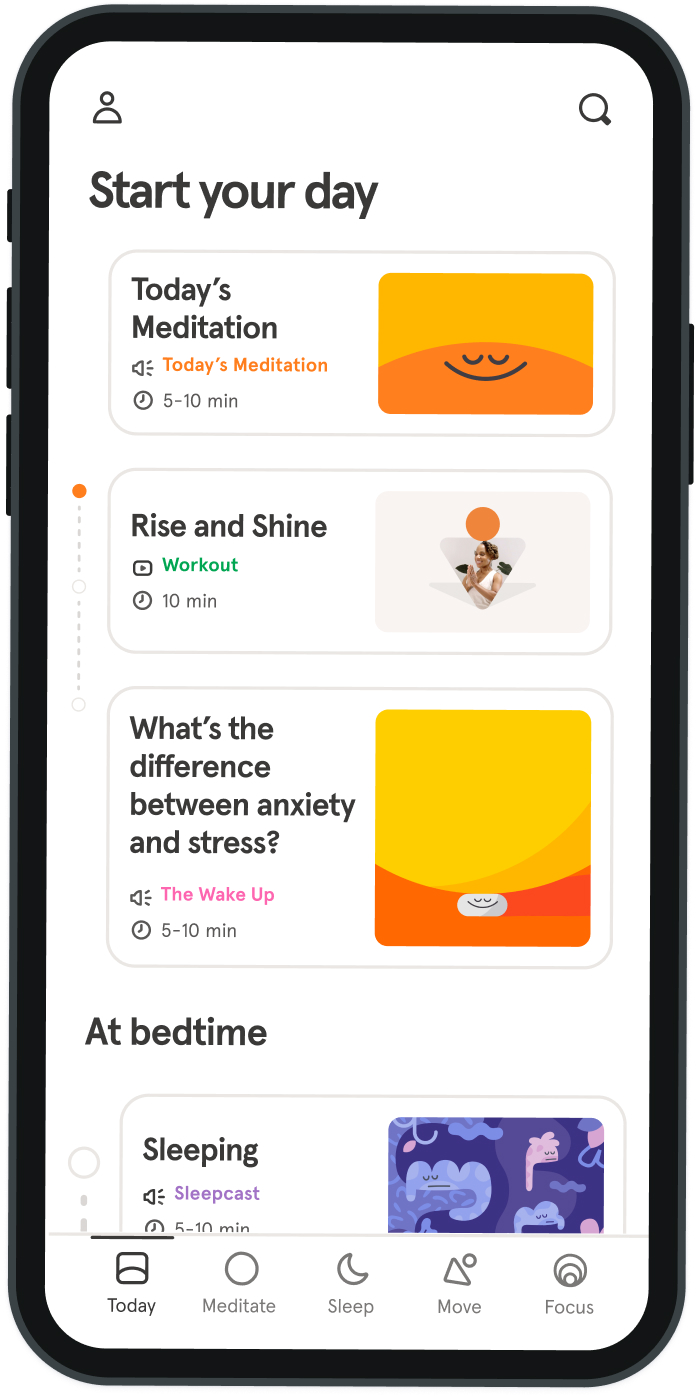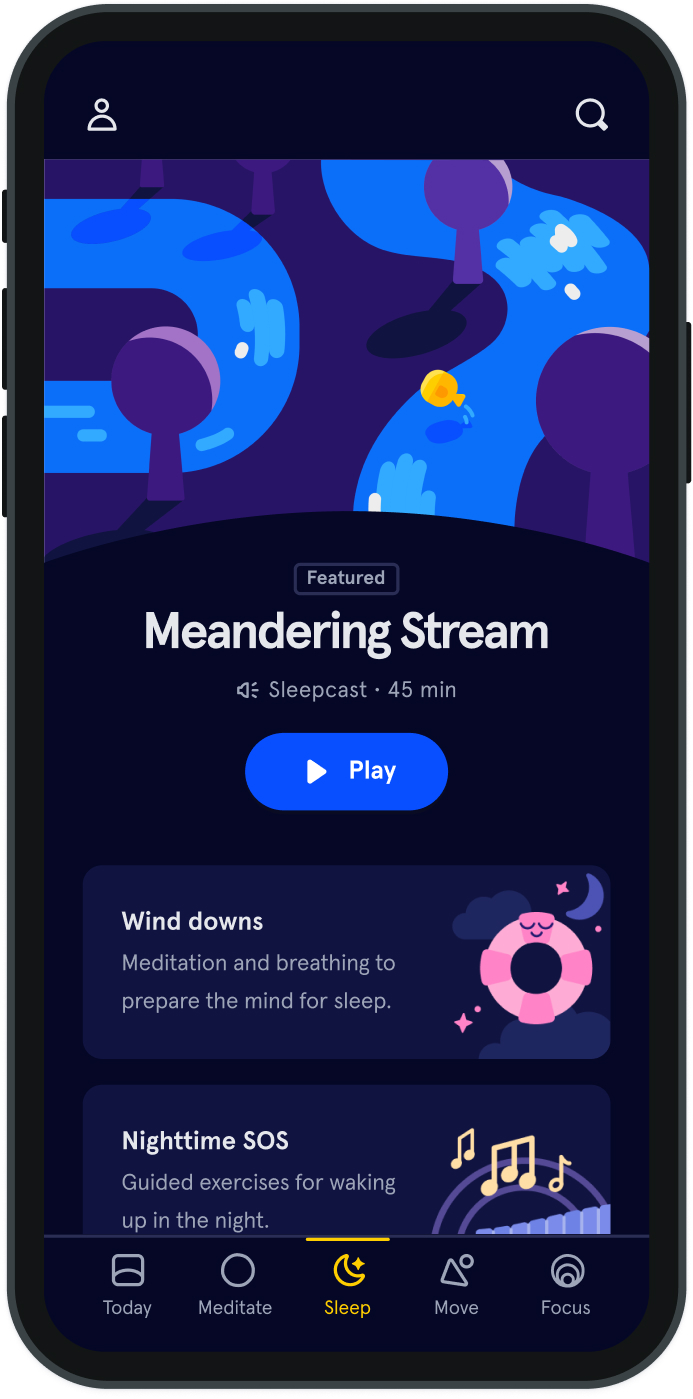Has someone ever told you to “just get over it”? Here’s what to tell them.
If you suffer from anxiety or a phobia, it’s not uncommon to be afraid to talk about it. Even thinking about the fear (such as getting on an airplane, driving on the highway, public speaking, etc.) can trigger feelings of panic.
And when you do open up about what you've been quietly feeling, it’s not uncommon to hear this: "Calm down. Don't worry so much. You just have to push through it." Suddenly, it feels like you’ve been punched in the gut. It’s clear that the person you’re talking to doesn’t understand the full scale of what you’re coping with, and now, you wish you’d never said anything in the first place.
Nathalie Savell, a holistic therapist in Baltimore, says that this common trope of “just push through” can be counterproductive to a person with anxiety or a phobia. She says this thought process minimizes a person’s struggle by insinuating they are blowing something small out of proportion. “The first step to any healing process is acceptance,” she says. “So anyone doing work on their own anxiety has to get to the point of accepting that they have it, and if the people around them are not able to support that part of the process, it is hindering to the process of healing what needs to be healed.” Anxiety or phobias can be challenging to talk about in the first place, so minimizing someone’s emotions can lead to even more isolation. This can be especially true for people who suffer from less common fears and aren’t accustomed to talking openly about them. Crystal Ponti, who has a cotton ball phobia, says she’s often had people shrug off, dismiss, or even mock her fear, which can be embarrassing and in the past, caused her to hide her struggle. “Phobias are disorders with real triggers,” she says. “Throughout my life, I’ve had people laugh at my cotton ball phobia. As a result, I’ve tried to hide it, rather than talking about how it’s affecting me, and connecting with others who share a similar fear.”
Staying quiet about one’s struggles limits that person’s ability to seek proper help or treatment. Being open and vulnerable can be an essential part of getting help and healing, or coping with the anxiety itself. And when people feel misunderstood, they may be less likely to open up again in the future. “I’ve always felt a little broken,” Ponti admits. “Like there was something wrong with me because I didn’t know others had this phobia.” For her, coming out about her struggle has been a huge part of the healing process, and while she still struggles with her fear, she doesn’t feel quite so alone. Being told a phobia should be easy to cope with (when in reality, it feels crippling) can lead to greater consequences. Lilly Dancyger, who has a phobia of water, says people constantly dismiss it, telling her “it shouldn’t be that big of a deal.” She says that even though she knows her phobia isn’t rational, that doesn’t change her response. “I go into full-on panic mode if I’m more than waist-deep in water. My ribs and throat contract. I can’t breathe and I get tunnel vision. It’s a very real, very scary and vulnerable reaction, and having people I love brush it off and dismiss it just because they aren’t afraid of water themselves hurts.” Often times, shrugging off someone’s anxiety or phobia isn’t meant out of cruelty. It’s simply a misunderstanding of how a person responds to their fear or a broader misunderstanding of phobias and anxieties in general. Those who suffer from the conditions often become accustomed to knowing and understanding their triggers like Dancyger. While exposure therapy, a technique which involves repeated exposure to the feared object or situation can be part of treatment, it is usually done in a controlled setting with professional help.
Savell, who deals with many patients with anxieties and phobias says, while it’s not always possible to understand what someone is going through, it’s important to emphasize support, rather than minimizing their experience. Instead of trying to explain why a person shouldn’t be afraid or telling them to “just push through” their fear, better responses might include simply acknowledging that the struggle sounds challenging. “What’s the best way I could support you?” is a great question to ask, she says. Even being honest about the fact that you don’t fully understand the condition, but you’ll be there for offer support, is a great place to start and make room for more conversation. Usually, when people open up about their struggles, whether it’s an anxiety, a phobia, or something else, they aren’t looking for a quick fix. Often times, they are just looking for that support and understanding that can seem too hard to come by. Next time, skip the “just push through.” Chances are, to them, it’s not quite as simple as it may sound.
Staying quiet about one’s struggles limits that person’s ability to seek proper help or treatment.
Sarah Bregel


Be kind to your mind
- Access the full library of 500+ meditations on everything from stress, to resilience, to compassion
- Put your mind to bed with sleep sounds, music, and wind-down exercises
- Make mindfulness a part of your daily routine with tension-releasing workouts, relaxing yoga, Focus music playlists, and more
Meditation and mindfulness for any mind, any mood, any goal

Stay in the loop
Be the first to get updates on our latest content, special offers, and new features.
By signing up, you’re agreeing to receive marketing emails from Headspace. You can unsubscribe at any time. For more details, check out our Privacy Policy.
- © 2025 Headspace Inc.
- Terms & conditions
- Privacy policy
- Consumer Health Data
- Your privacy choices
- CA Privacy Notice
